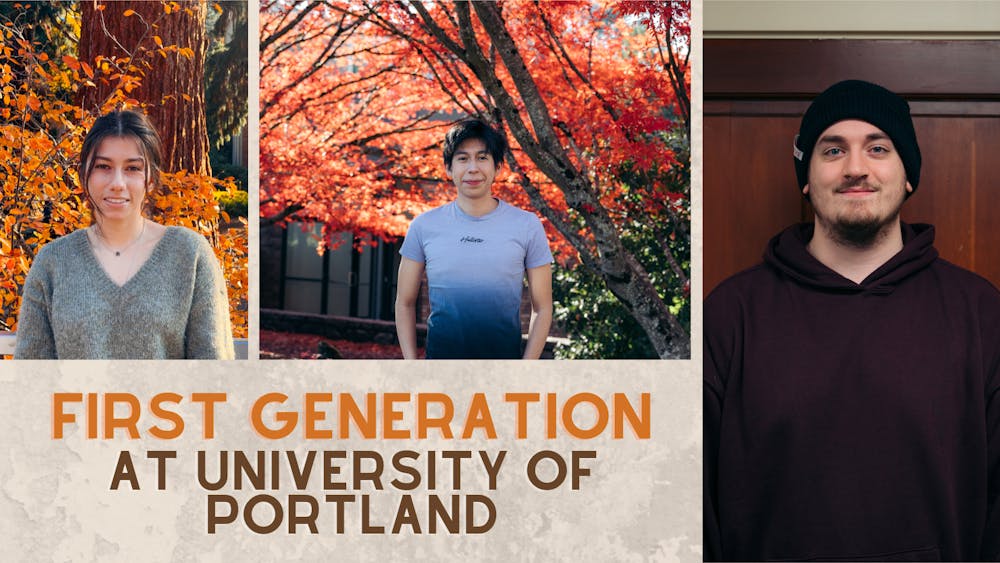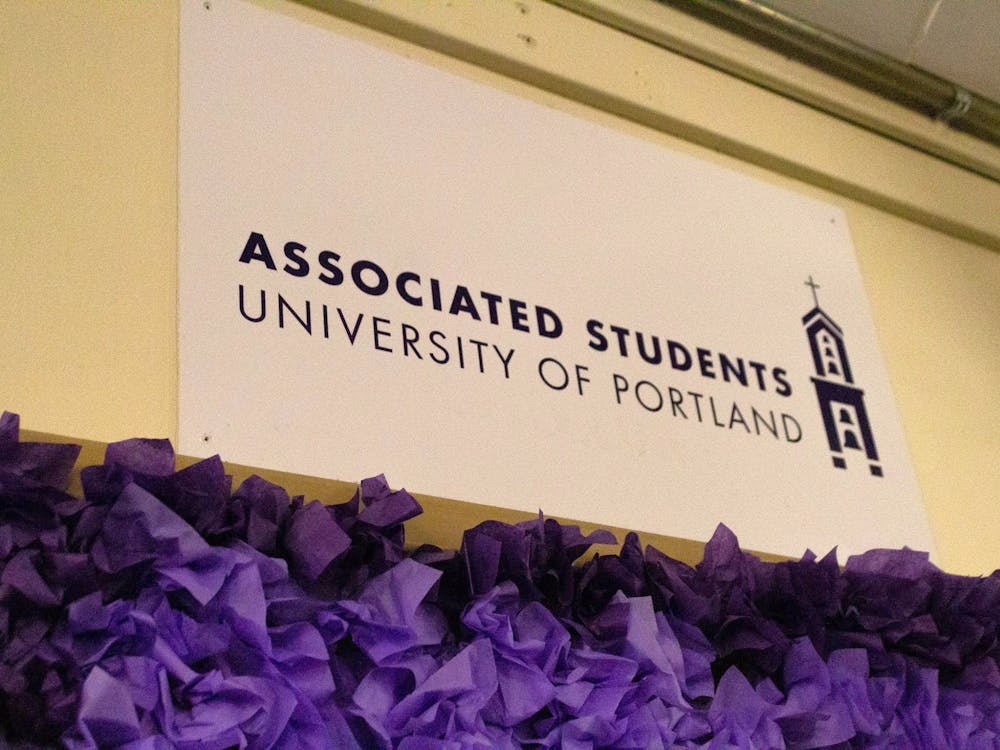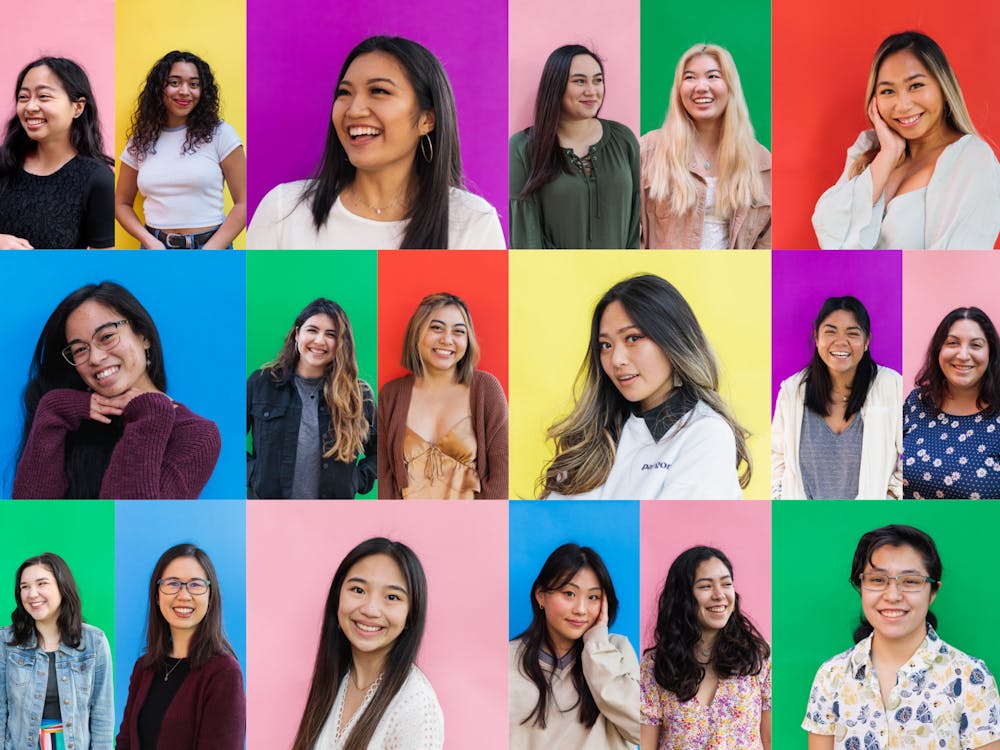Getting a college degree can be seen as just another stepping stone for many, especially for those who have college graduates in their family. Many students, however, are the first in their family to attend college. With limited guidance or examples to follow, first-generation (FGEN) college students face their own unique barriers and triumphs.
FGEN students, students whose parents or guardians haven’t earned a bachelor’s degree, are a growing community at the University. Currently, 28% of the student body identifies as FGEN, including 36% of the freshman class.
In celebration and acknowledgement of the accomplishments, goals and obstacles FGEN students experience at UP, The Beacon has interviewed three FGEN students with various backgrounds and goals for the future. These are their stories.
Gillian Ibarra ‘24
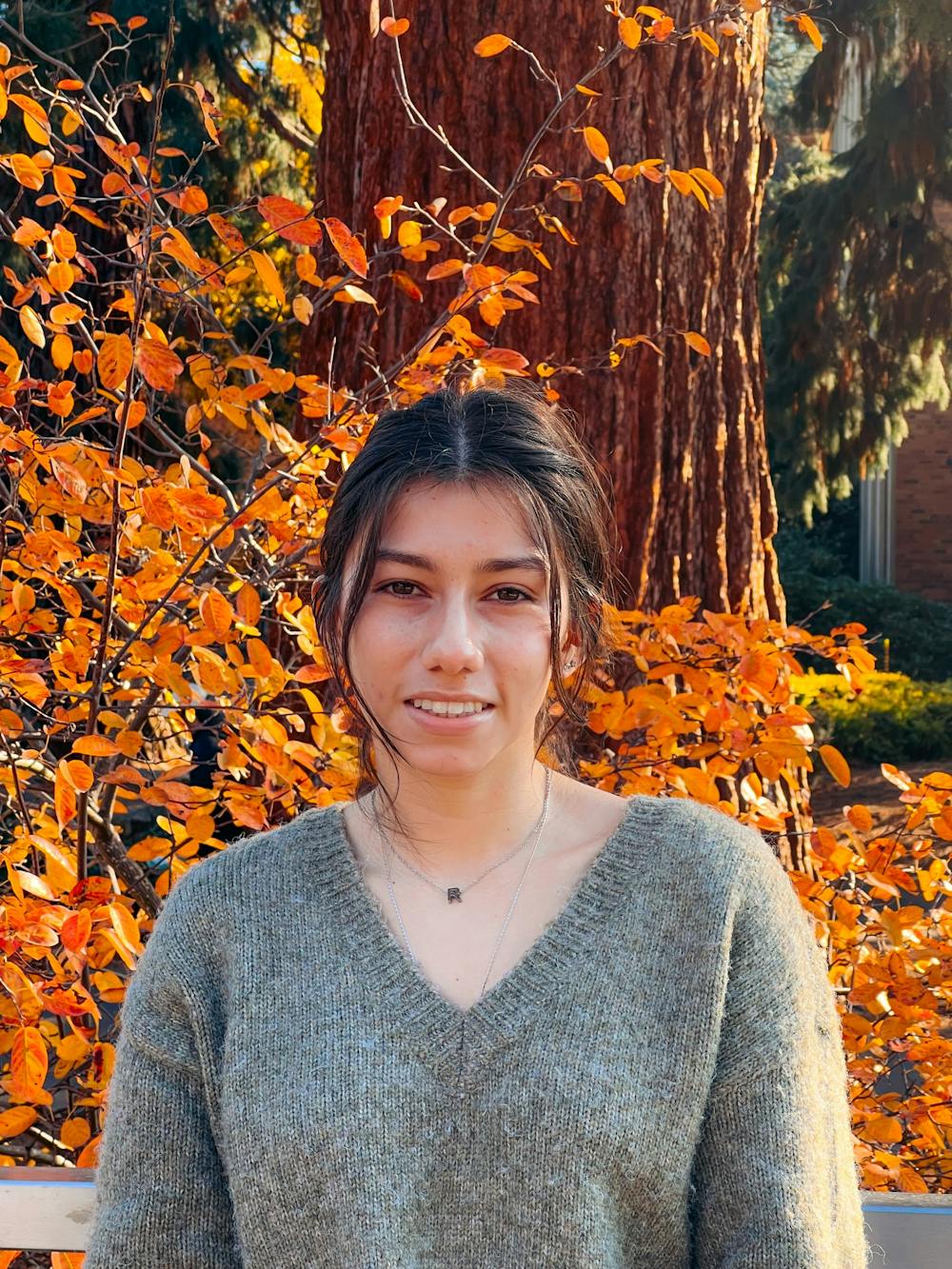
Organizational communication/Spanish major
She/her
A collectivist family-oriented mindset, a strong work ethic and the desire to improve her family’s social class fuels Gillian Ibarra’s ambitions.
Born to working-class Mexican immigrants in the east side of San Jose, CA, Ibarra is the first in her family to pursue a four-year degree. Her older sister has completed an associate’s degree, making Ibarra the first to earn a bachelor’s.
Having grown up in San Jose’s predominantly non-white environment, Ibarra spent her early life attending a diverse elementary school. Once she attended middle and high school in Los Gatos, she noticed inequalities faced by students of color at predominantly white institutions (PWIs). They were most apparent when it came to stereotyping and college preparation.
“The Latino community there was not served,” Ibarra said. “They only advocated for you to take AP Spanish and they only advertised it because you already speak it. They never encouraged you to take AP Bio, AP Physics, AP History — things like that.”
Despite facing discrimination at PWIs, Ibarra credits encouragement from supportive teachers and friends for influencing her decision to attend college. For most of her life, Ibarra had not considered pursuing higher education.
“All my teachers loved me and were like ‘You’re gonna go somewhere, are you applying to college?’” Ibarra said. “Which is why I was like ‘Oh, okay, I guess that’s an option.’ Building those relationships is what made me feel more comfortable and confident.”
Being the first in her family to attend college brought its own challenges. Having spent her freshman year remotely online during the COVID-19 pandemic, Ibarra initially struggled to find her place at UP while also navigating higher education without a familial example to follow.
It was through the University’s FGEN mentorship program that she was able to find community, support and purpose on campus. Ibarra now serves as one of FGEN’s coordinators.
“The mentorship program really helped,” Ibarra said. “It definitely gives us a lot of skills that we will be needing outside of the University. A big thing for me being an ambassador last year was paying it forward.”
After graduating, Ibarra hopes to use her knowledge, life experience and skills in environments in which marginalized voices are often ignored. She especially wants to advocate for marginalized perspectives and workers in the predominantly-white and affluent fields of corporate and business jobs.
“I want to go into HR,” Ibarra said. “Something I want to find value in is being diverse, open-minded and inclusive. With my communications and business backgrounds, I can be very versatile.”
Having grown up working-class and unsure of whether or not to attend college, Ibarra advises prospective FGEN students to carefully consider their financial situation before attending university.
“If you’re not sure, please don’t waste your money,” Ibarra said. “You can still explore and not waste all that money. One thing I advocate for is community college because then you’ll be set for sure and know what to pursue.”
Haniel Morquecho Beltran ‘25
Elementary education major
He/him
Haniel Morquecho Beltran never intended to attend UP. In fact, he applied to the school by complete accident.
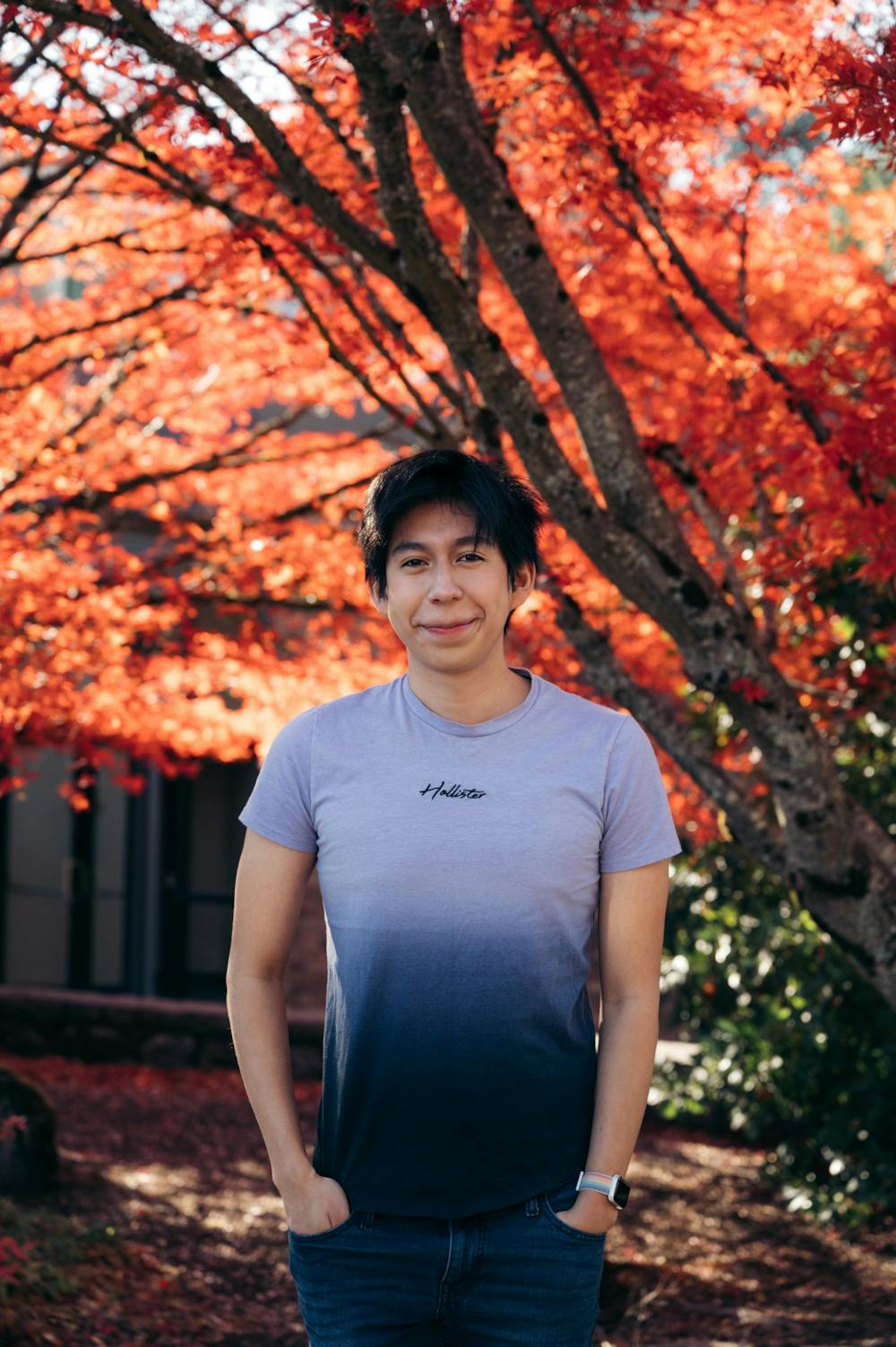
“Funny story,” Morquecho Beltran said. “I applied to all my safety schools in Colorado. While I was applying to those, I intended to apply to Portland State University on the Common App, and I accidentally applied to the University of Portland not knowing that I did that.”
Having received more financial aid from UP than any other out-of-state option, Morquecho Beltran decided to investigate more.
“That’s when I actually started to look into the school and realized that I did not apply to the school I thought I was applying to,” Morquecho Beltran said. “Out of all the out-of-state options, it was the cheapest. So, that’s how I made my decision.”
Hailing from Boulder, CO as the son of Mexican immigrants, Morquecho Beltran is well aware of the lack of representation in elementary schools. He understands the role and the positive impact that representation has for young students of color.
“I chose elementary education because what speaks to me the most is the lack of representation in elementary schools,” Morquecho Beltran said. “Especially for brown students, for male students — there’s just not that many.”
Luckily for Morquecho Beltran, his parents fully supported his decision to attend an out-of-state college and pursue a career in elementary education. However, he still had some doubts and fears. Being a queer person himself, Morquecho Beltran was worried about finding support and acceptance at UP.
“What I did worry about was how the dorm situation was going to be for me,” Morquecho Beltran said. “I was hearing stories.”
Morquecho Beltran’s fears reflect the reality that many queer students face. Oftentimes going unreported, LGBTQ+ students face much higher rates of harassment, sexual assault and bullying in schools.
“Luckily, none of those fears became a reality,” Morquecho Beltran said. “I had three incredible roommates my freshman year.”
After graduating college, Morquecho Beltran wants to use his experiences and knowledge as a queer FGEN Latinx student to be a positive and inspirational role model for marginalized kids at a formative age.
“I want them to feel seen,” Morquecho Beltran said. “Knowing that the 25-30 kids in my classroom are going to have their own unique experiences and their own unique backgrounds — to me that’s beautiful and I’m excited for that.”
For any prospective FGEN college student, especially queer students wanting to attend UP, Morquecho Beltran wants them to know that despite controversies from last year, UP’s student community still overwhelmingly supports and shows up for the LGBTQ+ community and students.
He encourages queerness to be celebrated on campus more frequently so that permanent positive change can happen.
“At the end of the day, love does win,” Morquecho Beltran said. “I cherish moments of being at the bell tower or the drag show — not only being accepted, but celebrated.”
Cameron Creitz ‘23
Music major
He/him/any
The pursuit of happiness and the pursuit of beautiful sounds — those are the guiding principles in Cameron Creitz’s life.
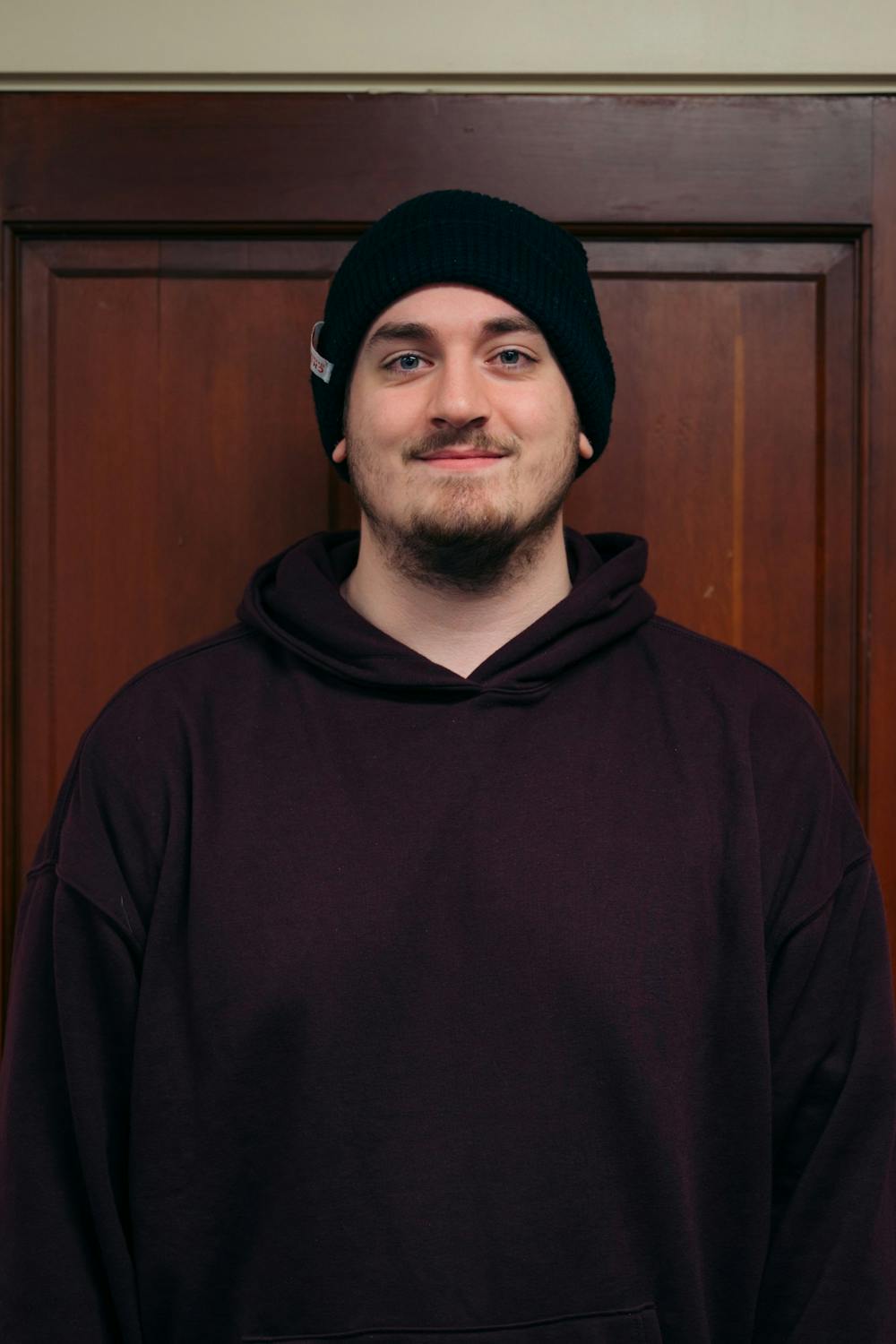
Music, or “wiggly air” as he jokingly calls it, has always played a vital and personal role in Creitz’s life. From a young age, music was always a symbol of joy and comfort for him.
“Growing up poor, the things that I would look forward to were going to the store and getting a CD off the shelf,” Creitz said. “Music was always something to look forward to.”
Raised in a working-class single-parent household in Beaverton, OR, life was not always easy for Creitz.
Financial hardship constantly forced him and his family to move around different apartment complexes. While attending St. Cecilia, Creitz and his family were able to receive tuition assistance as well as food from the parish’s Saint Vincent de Paul pantry.
Regardless of hardship, music remained a constant hobby and skill for Creitz, especially in the realm of opera singing. His abilities have ranked him high in national singing competitions and even landed him lead roles in opera productions both nationwide and overseas.
“In high school I started taking music very seriously,” Creitz said. “One summer, I went to Germany and studied there for part of an opera program.”
Creitz’s experience overseas encouraged him to pursue music in college. He hopes to use his music degree to further his passion for creating and sharing music with other people.
“Music is something that brings me a lot of joy in life.” Creitz said. “If I can bring that to other people, then I’ve basically done my job.”
Besides singing, Creitz can play four instruments: The bass guitar, acoustic guitar, electric guitar and the piano. He has also picked up the drums and is a member of the Portland-based indie punk band saint rémy.
“We are a kind of alternative punk band,” Creitz said. “I like to say we’re punk with colors.”
To any FGEN students or those who grew up facing similar hardships, Creitz advises them to follow their own expectations and goals for themselves.
“A lot of people have expectations for you,” Creitz said. “An important part is reminding yourself what your expectations for yourself are. If you follow that, you will usually end up in the right place.”
Carlos Moreno-Vega is a reporter for The Beacon. He can be reached at morenove23@up.edu.



